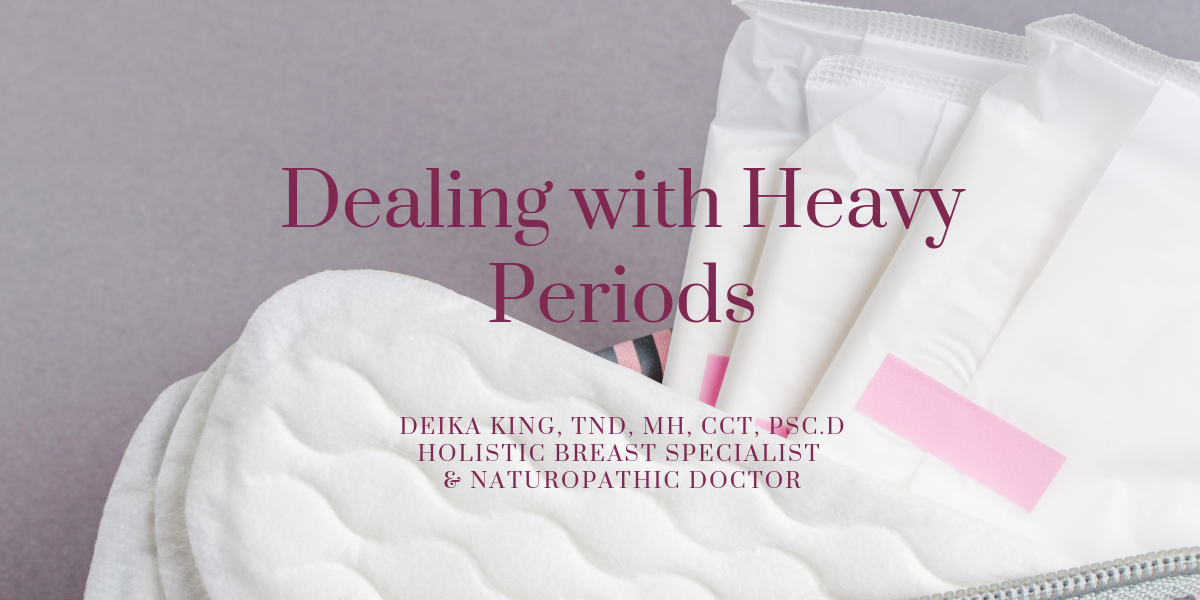Women are often dismayed to go through years of what would be considered “normal” periods, only to find at some point that their period has become heavy and rather unmanageable.
Heavy periods, also called menorrhagia, is when you lose more than 8 teaspoons per period of blood (it’s not easy to know exactly how many teaspoons of blood you lose), passing of large clots, and the need to change protection during the night.
Having said all that, a “heavy period” is still a very subjective term as periods vary from woman to woman in duration, the span between periods, discomfort and amount of blood loss. Heavy periods are not necessarily a problem unless they cause undue inconvenience or other physical issues such as anemia, which can cause fatigue, shortness of breath, faintness and when severe enough, angina.
Sometimes the cause of heavy periods is simply not known. In order to determine the cause in each individual, a visit to the doctor is necessary.
Here are some possibilities:
-
Hormonal Imbalance –
- During the course of the menstrual cycle, hormones rise and fall regularly. Sometimes around the time of perimenopause, these hormonal fluctuations get out of hand, causing heavier periods. Hormonal imbalances related to thyroid disease can have the same effect.
-
Uterine fibroids –
- These are benign tumors that form in the uterus during childbearing years. They commonly cause heavy bleeding and/or longer periods.
-
Polyps
- – Like uterine fibroids, polyps are benign, but they are smaller.
-
Dysfunction of the ovaries
- – If the ovaries are not ovulating properly, menorrhagia may result.
-
IUD (Intrauterine device)
- – IUDs are a well-known form of birth control, but are also well known for causing heavier periods.
-
Miscarriage
- – One single very heavy period my signal miscarriage. An ectopic pregnancy may also cause heavy bleeding.
-
Certain medications
- – anti-inflammatory drugs and anticoagulants may cause heavier periods.
-
Cancer
- – Uterine, cervical or ovarian cancer can sometimes be the cause of heavy bleeding.
-
Other conditions
- – pelvic inflammatory disease, endometriosis, thyroid problems, or liver or kidney disease may be the cause of heavy periods.
If you’re suffering from heavy periods, you should see your doctor to rule out any problems that require immediate attention. Most often, heavy periods signal hormonal imbalances that can be fairly easily corrected or other condition that may require little or no intervention unless the bleeding is causing disruptions in your life.
It isn’t necessary to panic over heavy periods, especially if they come at regular intervals and you’re feeling well otherwise. If you’re reaching the years of perimenopause, heavier periods almost always come with the territory.
Be sure to always have your yearly exam done and if you feel the need, visit your doctor before it’s time for your next exam to discuss your concerns. If you notice sudden, unusually heavy bleeding accompanied by unusual discomfort, you should seek the advice of your doctor immediately.
If you need assistant with regulating your menstrual cycle, please visit us to schedule an initial consultation.
Deika King, TND, MH, CCT, PSc.D
Traditional Naturopathic Doctor Houston
832-422-7271







